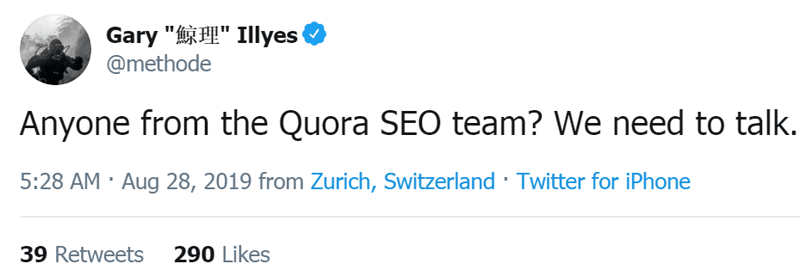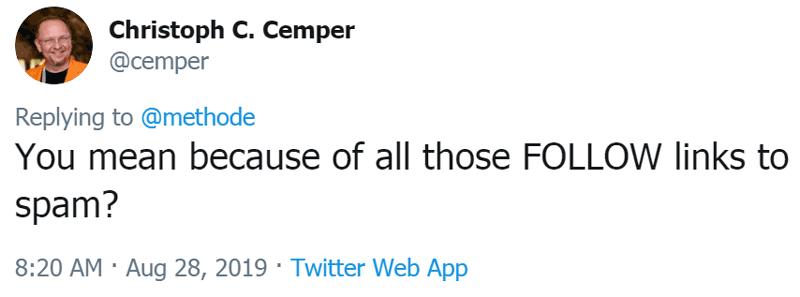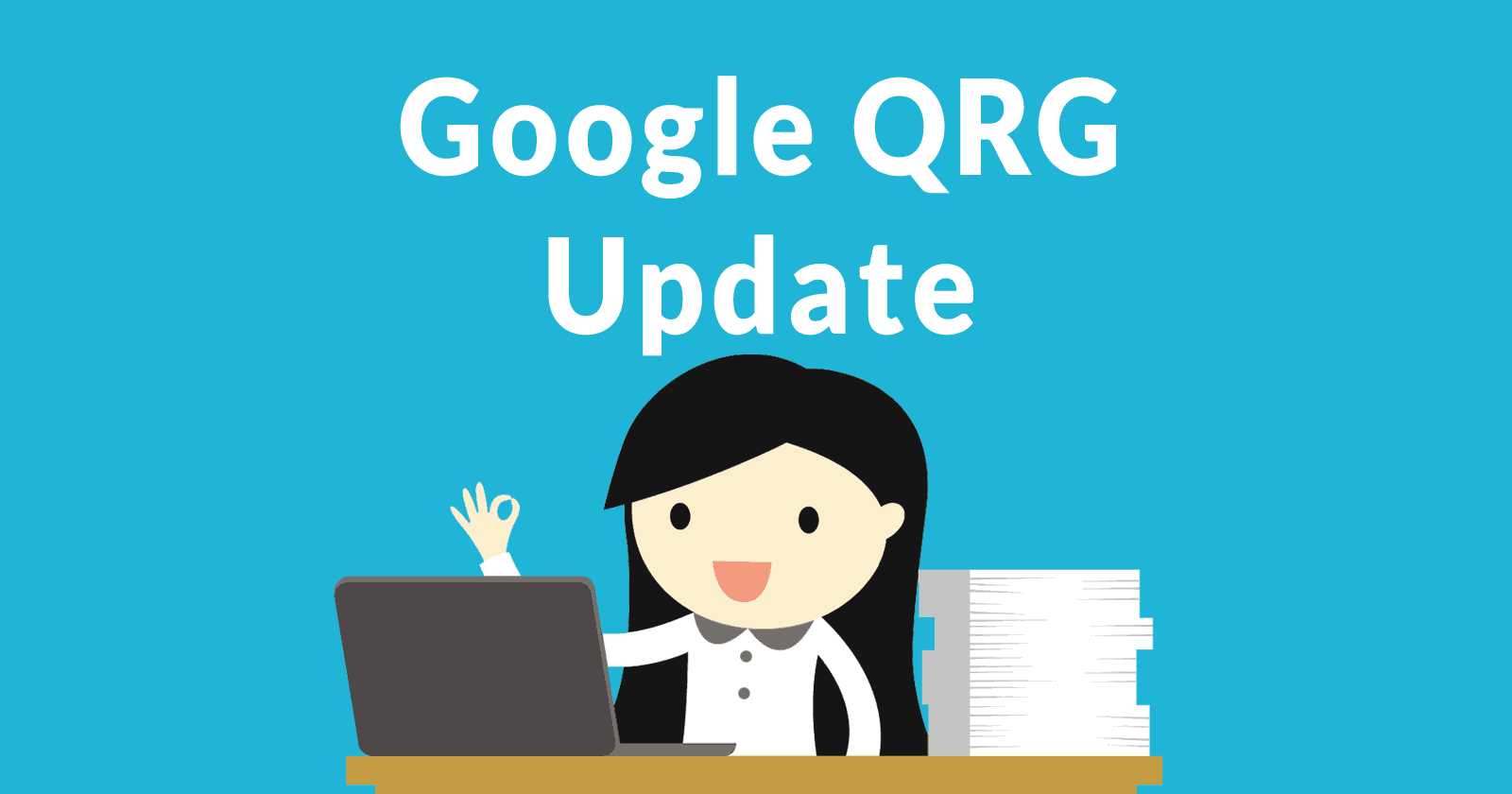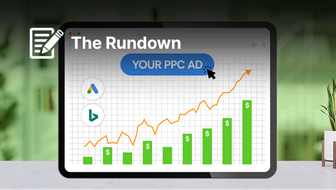Google has published New Quality Raters Guidelines. It contains significant changes to the Your Money or Your Life section as well as new areas of focus. The following tracks the changes and how they may influence SEO trends.
Quality Raters Guidelines are Not Algorithm Hints
Let’s get this out of the way. Many people look to the guidelines for tips on how Google’s algorithm works. This is the wrong way to look at it.
The guidelines instruct the quality raters to focus on certain signals and page properties for the purpose of judging the quality of those pages. What they are instructed to look for are not ranking factors.
Google just wants to know if the sites the algorithm is ranking meets certain quality standards and the instructions are meant to guide the raters on what to look for. That’s it.
Guidelines Do Not Hint at Ranking Signals
The guidelines are written to help the 3rd party quality raters to rate web pages. There are no hints as to what ranking signals are in Google’s algorithm.
However the guidelines to provide hints as to what kinds of quality issues the algorithm may be focusing on.
Quality Guidelines Predict Trends
The quality guidelines have been remarkably accurate for predicting the algorithm trends. For example, the increased instructions on how to rate medical and financial sites coincided with algorithms designed to improve the relevance of those kinds of sites.
Google’s last few core algorithm updates have strongly affected News sites. The fact that the news section was added to the QRG shows how the QRG can reflect where past or future algorithms are focused on.
So while there may not be hints about ranking signals in the QRG, it may be possible to deduce algorithm trends.
What Changed in Google’s Quality Raters Guidelines
A key change to the quality raters guidelines appears in section 2.3.
Section 2.3 handles Your Money or Your Life (YMYL) topics. The change affects news and government related topics.
Previously the news topic section was grouped together with public/official information pages.
The News topic is now it’s own section. It provides guidance on how to judge and rate news pages.
Google has been under fire by politicians and pundits who charged that Google is biased. So it may not be coincidental that the News and the Government/Civics section have been given emphasis in the new quality raters guidelines.
Topics Emphasized Over Pages
It may seem minor, but Google has emphasized the topic of a page over the word “page” itself. The word “pages” has been removed in many places. The word “topic” has been added in many places.
De-emphasizing the word “pages” has the effect of refocusing the sentences on the newly added instances of the word “topic.”
This change happens in the introduction of YMYL section (2.3) and follows through to the entire section.
Old Version
“Some types of pages could potentially impact the future happiness, health, financial stability, or safety of users. We call such pages “Your Money or Your Life” pages, or YMYL. The following are examples of YMYL pages:”
New Version, with additions added:
“Some types of pages or topics could potentially impact a person’s future happiness, health, financial stability, or safety. We call such pages “Your Money or Your Life” pages, or YMYL. The following are examples of YMYL topics:”
This change may appear minor but it has the effect of emphasizing the topicality of a page as something to focus on.
“Some types of pages or topics…”
A phrase like that encourages the raters to think in terms of topics and the topic of the page.
The SEO industry has been pivoting toward thinking of content in terms of topics for the past few years. This is a reaction to the search algorithm updates that seem to be increasingly better at focusing on the topic of a page more than just raw keyword matching.
Research on understanding topics has been ongoing for many years. An example of recent research is: Improving topic clustering on search queries… (PDF)
“Uncovering common themes from a large number of unorganized search queries is a primary step to mine insights about aggregated user interests. Common topic modeling techniques for document modeling often face sparsity problems with search query data as these are much shorter than documents. We present two novel techniques that can discover semantically meaningful topics in search queries…”
There are many more research papers and patents. I just wanted to point out that what seems like a minor change might be somewhat meaningful in terms of how we think of web pages.
YMYL is Rewritten
Almost the entirety of section 2.3 that deals with YMYL issues has been rewritten. Previously shopping, financial and medical topics were in the top three of that section.
The top topics are:
- News and Current Events
- Civics, Government and Law
Those are followed by:
- Finance
- Shopping
- Health and Safety
- Groups of People (new)
- Other (newly revised)
Notable is that not only has the Medical section been demoted from third to fifth place, but it’s been renamed from Medical Information Pages to Health and Safety.
Brand New YMYL Content
These are the two brand new News and Civics sections:
- “News and current events: news about important topics such as international events, business, politics, science, technology, etc. Keep in mind that not all news articles are necessarily considered YMYL (e.g., sports, entertainment, and everyday lifestyle topics are generally not YMYL). Please use your judgment and knowledge of your locale.
- Civics, government, and law: information important to maintaining an informed citizenry, such as information about voting, government agencies, public institutions, social services, and legal issues (e.g., divorce, child custody, adoption, creating a will, etc.).”
These are the newly revised sections, including the new Health and Safety section:
- “Finance: financial advice or information regarding investments, taxes, retirement planning, loans, banking, or insurance, particularly webpages that allow people to make purchases or transfer money online.
- Shopping: information about or services related to research or purchase of goods/services, particularly webpages that allow people to make purchases online.
- Health and safety: advice or information about medical issues, drugs, hospitals, emergency preparedness, how dangerous an activity is, etc.
- Groups of people: information about or claims related to groups of people, including but not limited to those grouped on the basis of race or ethnic origin, religion, disability, age, nationality, veteran status, sexual orientation, gender or gender identity.
- Other: there are many other topics related to big decisions or important aspects of people’s lives which thus may be considered YMYL, such as fitness and nutrition, housing information, choosing a college, finding a job, etc. Please use your judgment.”
Fitness, Nutrition, College Search and Job Search
It’s also notable that the “Other” topic has been expanded. It now includes additional topics.
Old Version:
“Other: there are many other topics that you may consider YMYL, such as child adoption, car safety information, etc. Please use your judgment.”
New Version:
“Other: there are many other topics related to big decisions or important aspects of people’s lives which thus may be considered YMYL, such as fitness and nutrition, housing information, choosing a college, finding a job, etc. Please use your judgment.”
Fitness and Nutrition, college search and job search are big money affiliate topics. Will they receive scrutiny and emphasis in a future round of core algorithm updates?
It may be reasonable to assume that the quality raters hadn’t been focusing enough on these topics. The fact that Google mentions them points to the likelihood that these are areas Google is giving special focus on as topics that are YMYL.
And what is housing information? Is that real estate, home loans and/or home improvement? Home loans and home improvement are big money affiliate niches.
The topic of housing information feels somewhat vague. It will be interesting to see if housing related niches are impacted in upcoming broad core updates.
Section 2.4.1 Identifying the Main Content (MC)
This section was updated to include new guidance on News and shopping pages.
This the new content:
“News website homepage: the purpose is to inform users about recent or important events. (MC – News Homepage)
News article page: the purpose is to communicate information about an event or news topic. (MC – News Article)
Store product page: the purpose is to sell or give information about the product.
● Content behind the Reviews, Shipping, and Safety Information tabs are considered to be part of the MC. (MC – Shopping Page)”
Section 2.5.2 Author Information
This section is about finding out who is responsible for a website and who created the page content. This section remains intact except for one addition.
In the section titled:
Websites are usually very clear about who created the content on the page. There are many reasons for this:
This is the new section that was added:
“Websites want users to be able to distinguish between content created by themselves versus content that was
added by other users.”
Is Google Reviewing Guest Articles and UGC?
This change to the author guidelines relates to news magazines but also any site that accepts guest articles or user generated question and answers.
Does this mean that Google is reviewing guest posts and authors?
Gary Illyes recently called out Quora and their SEO team via Twitter.
 Gary Illyes tweeted:
Gary Illyes tweeted:“Anyone from the Quora SEO team? We need to talk.”
Quora is a site that publishes user generated content. Some speculated it had to do with user generated spam links.
 Christoph Cemper, founder of Link Research Tools tweeted: “You mean because of all those FOLLOW links to spam?”
Christoph Cemper, founder of Link Research Tools tweeted: “You mean because of all those FOLLOW links to spam?”Others tweeted that it may have to do with thin content.
We don’t know for certain but it’s interesting that the latest version of the QRG has a new section that addresses the authors of user generated content. This could be indicative that Google may be focusing on identifying low quality sites and excluding them.
Section 5.1 Very High Quality Main Content
This section has been expanded. The new content again addresses the uniqueness and originality. Again, it has a new focus on News sites, but it’s not limited to news sites. The standards of high excellence applies to all sites but in particular to YMYL sites.
Interestingly the new section goes beyond the quality of the text content. It also encourages the quality raters to judge the quality and originality of the artistic content, such as images, photography and videos.
I have long been encouraging site audit clients to review their images so that they not only download quickly but also that they express something about the content, that the images are relevant and original.
Here is the new content:
“A factor that often distinguishes very high quality MC is the creation of unique and original content for the specific website.
While what constitutes original content may be very different depending on the type of website, here are some examples:● For news: very high quality MC is original reporting that provides information that would not otherwise have been known had the article not revealed it. Original, in-depth, and investigative reporting requires a high degree of skill, time, and effort. Often very high quality news content will include a description of primary sources and other original reporting referenced during the content creation process. Very high quality news content must be accurate
and should meet professional journalistic standards.● For artistic content (videos, images, photography, writing, etc.): very high quality MC is unique and original content created by highly skilled and talented artists or content creators. Such artistic content requires a high degree of skill/talent, time, and effort. If the artistic content is related to a YMYL topic (e.g., artistic content with the purpose of informing or swaying opinion about YMYL topics), YMYL standards should apply.
● For informational content: very high quality MC is original, accurate, comprehensive, clearly communicated, professionally presented, and should reflect expert consensus as appropriate. Expectations for different types of information may vary. For example, scientific papers have a different set of standards than information about a hobby such as stamp collecting. However, all types of very high quality informational content share common attributes of accuracy, comprehensiveness, and clear communication, in addition to meeting standards appropriate to the topic or field.”
Section 5.2.3 Very Positive Reputation
This section also received an update. This part is about reputation.
This is the new content:
“For YMYL topics especially, careful checks for reputation are required. YMYL reputation should be based on evidence from experts, professional societies, awards, etc. For shopping pages, experts could include people who have used the store’s website to make purchases; whereas for medical advice pages, experts should be people or organizations with appropriate medical expertise or accreditation. Please review section 2.3 for a summary of types of YMYL pages/topics.”
Website reputation has long been a part of the Quality Raters Guidelines. I don’t think this means you should go out and join associations and seek testimonials.
But, publishers creating YMYL information should ideally be expert and have a good reputation. So this is one of those take due notice thereof and govern yourself accordingly type of situations.
Is Google researching reputation? I’ll have more on that in a future article.
Something I’ve long encouraged clients to do is something I call non-link link building. It’s a type of outreach designed to reinforce the expert quality of a website or website author. So many web publishers focus on links and pass up excellent (non-link) opportunities that demonstrate expertise and excellence.
Takeaways: More to Come?
There are significant changes this time around.
Focus on topics instead of pages
Greater on news sites. Reflects recent algorithmic actions in the news industry.
Stronger emphasis on author credibility (and credentialing) in YMYL categories
Higher standards for reputation
Higher standards for non-text signals of quality like images and videos





